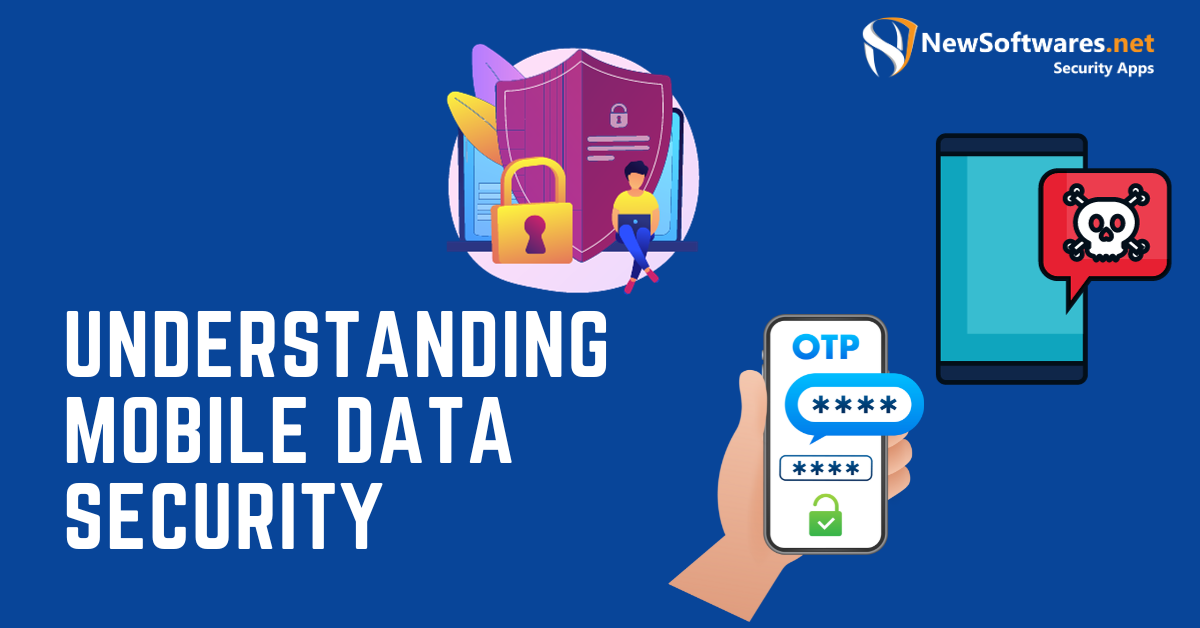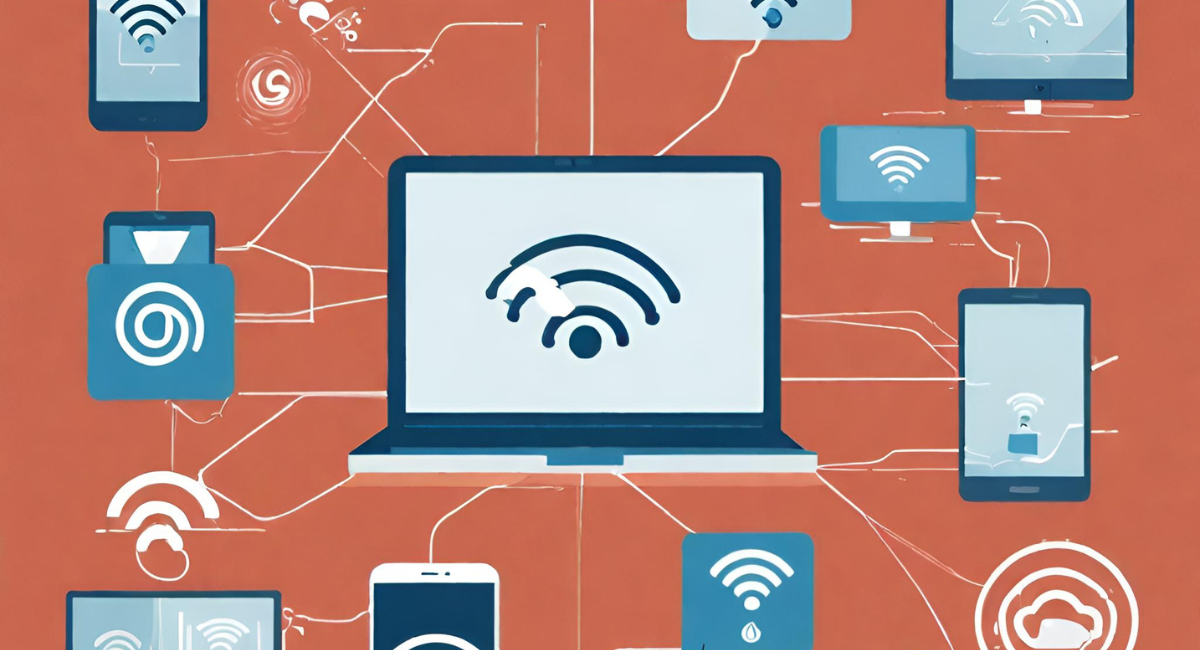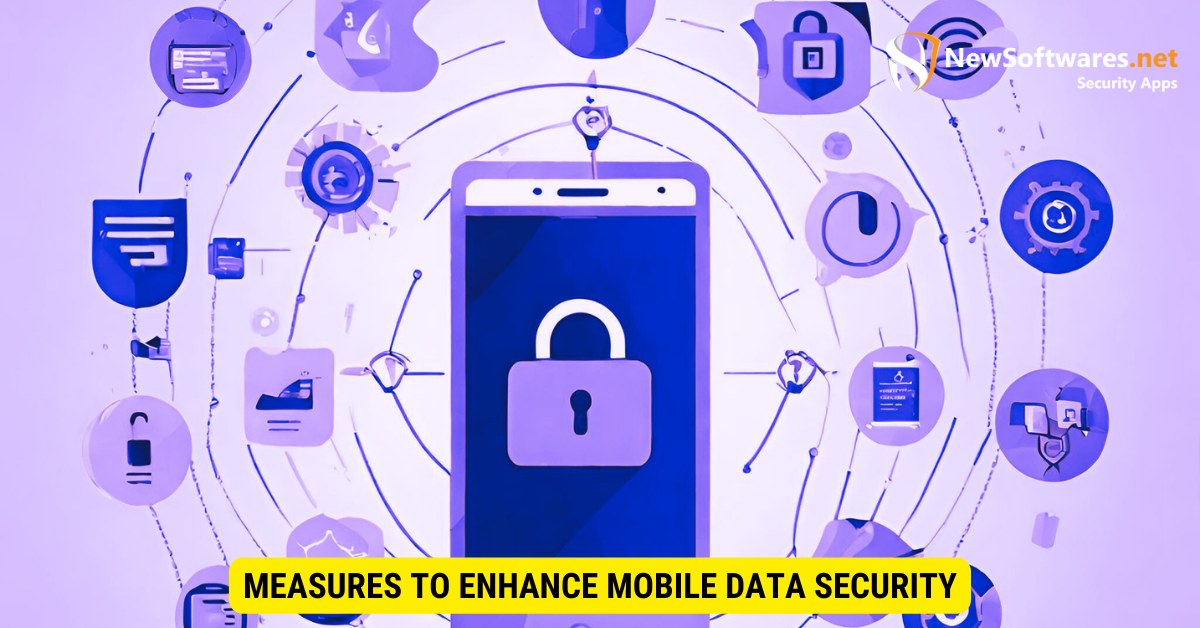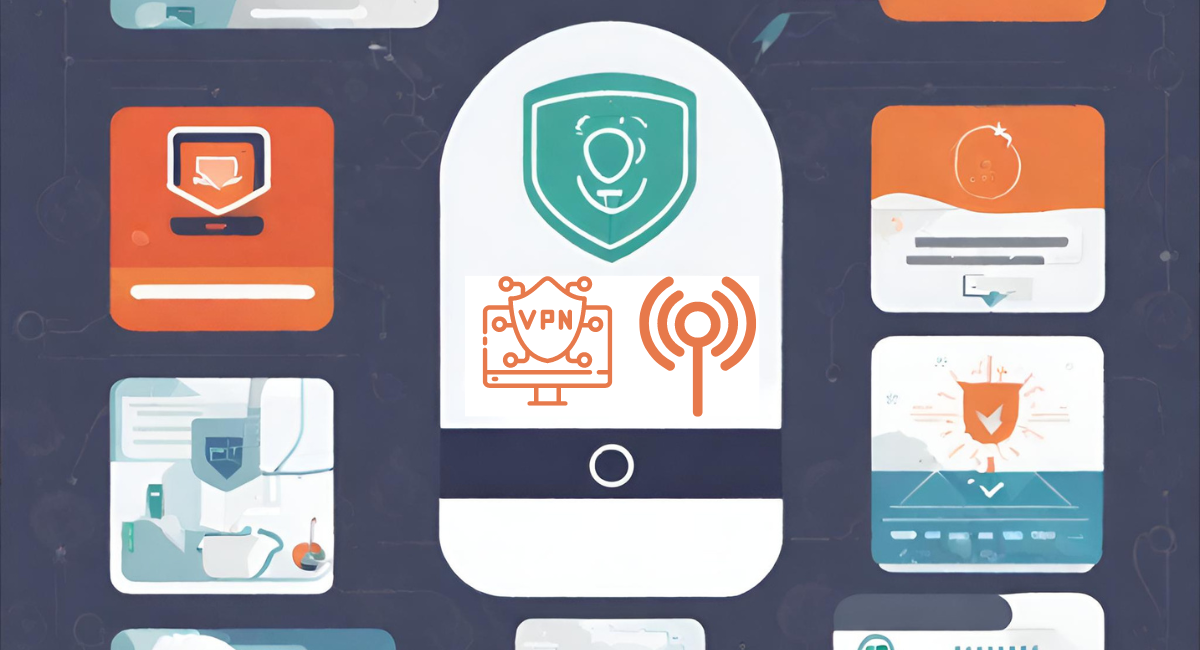Mobile data usage on a cell phone has vulnerabilities that can be exploited by Cybersecurity risks, including hacking, phishing attempts, and malware attacks, pose significant threats to digital systems and data. However, by understanding these vulnerabilities and implementing appropriate security measures, users can significantly enhance the protection of their mobile data.
Mobile phones have become an necessary part of our lives in today’s digital age. From communication to entertainment, we rely heavily on these devices for various tasks. One of the most critical aspects of smartphone usage is mobile data security. With the increasing dependence on data-driven applications and services, it is vital to understand the potential risks and vulnerabilities associated with cell phone data usage.
Understanding Mobile Data Security

Mobile data security refers to the protection of sensitive information transmitted and stored on your cell phone. This includes personal data, financial information, and other confidential details. Understanding the basics of mobile data and the significance of its security is the foundation for safeguarding your digital life.
The Basics of Mobile Data
Mobile data, or cellular data, refers to the linking that allows you to access the internet on your cell phone without relying on Wi-Fi. It lets you browse websites, stream videos, use apps, and perform various online activities. However, this convenience comes with its own set of risks.
When you use mobile data, your cell phone communicates with cell towers to establish a connection to the internet. This connection is made through your cellular network provider, which assigns your device an IP address. This IP address is exclusive to your device and acts as its online identifier.
Mobile data is transmitted over the airwaves, making it susceptible to interception by malicious individuals. Hackers can use techniques like eavesdropping or man-in-the-middle attacks to intercept and access your mobile data. This is why ensuring your mobile data is secure is important.
The Importance of Data Security
Protecting your mobile data is crucial due to the sensitive nature of the information it contains. Your device may store personal photos, emails, contacts, and login credentials for various online accounts. Any unauthorized entry to this data can lead to identity theft, financial loss, and other severe consequences.
One of the main threats to mobile data security is malware. Malicious software can be unknowingly downloaded onto your device through infected apps, websites, or email attachments. Once installed, malware can steal your personal info, monitor your internet activities and even gain command over your device.
Another important aspect of mobile data security is encryption. Encryption is the process of encoding data in a way that can only be accessed or read by authorized parties. When your mobile data is encrypted, it becomes much more difficult for hackers to decipher and exploit it.
Additionally, keeping your mobile operating system and apps up to date is essential. Inventers regularly release security patches and updates to fix vulnerabilities and protect against new threats. By keeping your software updated, you ensure you have the latest security measures.
Furthermore, practicing good mobile data security habits, such as using strong and single passwords, enabling two-factor authentication, and being cautious of suspicious links and attachments, can greatly enhance your protection against data breaches.
In conclusion, mobile data security is paramount in today’s digital age. Understanding the basics of mobile data and the significance of its security empowers you to take the necessary steps to protect your sensitive information. By staying informed about the newest threats and executing robust security measures, you can enjoy the benefits of mobile connectivity without compromising your privacy and security.
The Vulnerabilities of Mobile Data
Despite technological advancements, mobile data remains vulnerable to various threats. Understanding these vulnerabilities is necessary for adopting appropriate measures to mitigate the risks.
Mobile devices have become an crucial part of our lives, permitting us to stay connected and access information on the go. However, this convenience comes at a price – the security of our mobile data. With the growing reliance on smartphones and tablets, it is crucial to be aware of the potential risks and take steps to defend our sensitive information.
Common Threats to Mobile Data Security
Challenges like data breaches, unauthorized access, and fraudulent email schemes attacks pose significant risks to your mobile data security. Cybercriminals are regularly devising new ways to exploit vulnerabilities in smartphones and gain unauthorized access to sensitive information.
Data breaches have become common in recent years, with main companies and organizations falling victim to cyberattacks. These breaches not only compromise the personal information of millions of individuals but also highlight the vulnerabilities in mobile data security.
Hacking is another prevalent threat to mobile data security. Hackers use various techniques, such as malware and ransomware, to gain control over mobile devices and steal valuable data. Once they access your device, they can monitor your activities, steal your passwords, and even lock you out of your device.
Phishing attacks, conversely, involve tricking users into providing their personal information by posing as a legitimate entity. These attacks often come in the form of emails or text messages that seem to be from trusted foundations, such as banks or online retailers. Once you unknowingly provide your information, it can be used to compromise your mobile data.
The Role of Public Wi-Fi Networks

Public Wi-Fi networks, although convenient, can be a breeding ground for cyberattacks. Hackers often target users connected to these networks to intercept their data transmissions. It is crucial to be cautious while accessing the internet through public Wi-Fi networks to protect your mobile data.
When you connect to a public Wi-Fi network, your data is transmitted over the airwaves, making it susceptible to interception. Hackers can use various techniques like packet sniffing to capture and analyze the transmitted data. This means that these malicious individuals can easily obtain any sensitive information, such as passwords or credit card details.
To protect your mobile data while using public Wi-Fi networks, it is recommended to use a virtual private network (VPN). A VPN makes a secure and encrypted connection among your device and the internet, preventing hackers from intercepting your data. Additionally, it is important to avoid retrieving sensitive info, such as online banking or shopping, while associated to public Wi-Fi networks.
Furthermore, keeping your mobile devices updated with the newest security patches and software updates is essential. These updates frequently include fixes for known vulnerabilities, confirming your device is protected against the latest threats.
In conclusion, mobile data security is critical in today’s digital age. Understanding the vulnerabilities and threats is the first step toward safeguarding sensitive information. By adopting best practices, such as using strong passwords, enabling two-factor authentication, and being cautious while accessing public Wi-Fi networks, you can significantly reduce the risks associated with mobile data.
How Mobile Data Can Be Compromised?
The compromise of mobile data can occur through various means. Awareness of these potential dangers can help you stay vigilant and take appropriate precautions.
Mobile devices have become an important part of our lives, permitting us to stay connected and access information on the go. However, this convenience comes with its own set of risks. In this article, we will explore some common ways in which mobile data can be compromised and discuss steps you can take to protect yourself.
Phishing Attacks on Mobile Devices
Phishing attacks involve tricking users into divulging their sensitive information through fraudulent emails, messages, or websites. These scams can easily target mobile phone users, making it imperative to remain cautious about suspicious links or requests for personal information.
Imagine receiving an email that looks to be from your bank, request you to verify your account details by clicking on a link. You may not think twice before clicking on it, especially using your mobile device. However, this could be a phishing attempt to steal your login credentials and gain unauthorized access to your financial information.
To protect yourself from such attacks, being skeptical of unsolicited messages or emails inquiring for personal info is essential. Always double-check the sender’s email address or website URL before entering any sensitive data. If in doubt, contact the organization directly through their official channels to verify the request’s legitimacy.
Malware and Mobile Data Breaches
Malware, including viruses, worms, and spyware, can infiltrate your mobile device and compromise your data. Additionally, mobile data breaches can occur through vulnerable apps or unsecured connections. Regularly updating your phone’s software and using trusted security apps can help prevent such incidents.
Picture this: you download a seemingly harmless app from a third-party website, unaware it contains malware. Once installed on your device, this malware can silently collect your personal information, such as login credentials and banking details, or even track your location without your knowledge.
To safeguard your mobile data from malware and breaches, it is crucial to only copy apps from authorized app stores, such as Google Play Store or Apple App Store. These platforms have strict security measures to minimize the risk of malicious apps. Additionally, keeping your device’s software up to date confirms you have the latest security patches and bug fixes.
Another important aspect of protecting your mobile data is to avoid connecting to unsafe Public Wi-Fi networks, like those commonly available in cafes, airports, or hotels, are frequently lacking encryption, which can create vulnerabilities for hackers aiming to intercept your data. When using public Wi-Fi, it is advisable to service a virtual private network (VPN) to secure your internet traffic by adding an additional layer of protection.
In conclusion, mobile data compromise is a real threat in today’s digital age. By staying knowledgeable about the potential risks and implementing security measures, you can significantly decrease the chances of falling victim to phishing attacks, malware, or data breaches. Remember, your mobile device holds a wealth of personal information, so it is essential to prioritize its protection.
Measures to Enhance Mobile Data Security

Thankfully, several measures can significantly enhance the security of your mobile data. By adopting these practices, you can effectively safeguard your personal information and reduce the risk of data breaches.
Secure Browsing Practices
Practicing secure browsing habits, such as avoiding suspicious websites, utilizing secure connections, and being cautious about sharing personal information, significantly reduces the chances of falling victim to cyberattacks. Regularly clearing cookies and cache can also help maintain privacy.
The Use of VPNs for Mobile Data

A Virtual Private Network (VPN) encrypts your internet joining, ensuring a secure and private browsing experience. Using a VPN on your cell phone protects your mobile data from potential eavesdropping and unauthorized access, particularly on public Wi-Fi networks.
The Future of Mobile Data Security
As technology continues to evolve, so does the landscape of mobile data security. Staying informed about emerging threats and advancements in data protection is essential to keep your mobile data secure.
Emerging Threats to Mobile Data
New types of attacks and vulnerabilities can potentially compromise mobile data security. It is critical to stay efficient on the latest developments in cybersecurity and adopt preventive measures to address these emerging threats.
Innovations in Mobile Data Protection
Mobile data security constantly strives to develop innovative solutions to counter evolving threats. Various advancements, such as biometric authentication and enhanced encryption algorithms, aim to provide stronger protection for your mobile data.
FAQs
What is mobile data security?
Mobile data security refers to the protection of sensitive information transmitted and stored on a cell phone.
How can mobile data be compromised?
Common methods include phishing attacks, malware infiltration, data breaches, and unauthorized access through unsecured Wi-Fi networks.
Why is public Wi-Fi considered a threat to mobile data security?
Public Wi-Fi networks are often unencrypted, making it easier for hackers to intercept data transmitted.
How can users enhance the security of their mobile data?
Adopting secure browsing practices, using VPNs, regularly updating software, and avoiding suspicious links and apps can help enhance mobile data security.
What are the emerging threats and advancements in mobile data security?
As technology evolves, new cyberattacks and vulnerabilities emerge, but advancements like biometric authentication and enhanced encryption algorithms are developed to counter these threats.
Key Takeaways
- Understanding Mobile Data: Mobile data, or cellular data, allows operators to access the internet without Wi-Fi. It involves communication between cell phones and cell towers, making the data susceptible to interception.
- Significance of Data Security: Mobile devices store sensitive information like photos, emails, and login credentials. Unauthorized entry can lead to identity theft and financial loss.
- Common Threats: Data breaches, hacking, phishing attacks, and malware are significant threats to mobile data security.
- The Role of Public Wi-Fi: due to their open nature, public Wi-Fi networks are vulnerable to cyberattacks. Using VPNs can protect data on such networks.
- Measures for Security: Adopting secure browsing habits, using VPNs, and staying updated with the latest software can greatly enhance mobile data security.
Conclusion
In the modern digital era, mobile data security is paramount. While there are inherent vulnerabilities and threats associated with cell phone data usage, proactive measures can ensure users safeguard their sensitive information and maintain a secure digital experience.
